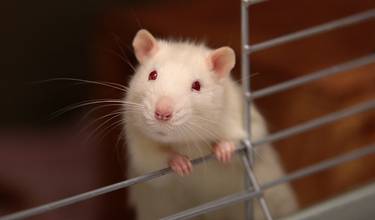As we get older, we lose a large part of our muscle mass. The bone tissue also becomes more fragile, and our risk of getting osteoporosis increases the older we get. The fragile bone tissue causes older people to have a higher risk of breaking their bones when they fall, and the decreasing muscle mass makes them more likely to fall.
New studies are investigating protein molecules to prevent blood clots
Drugs that create bigger muscles can be associated with anabolic steroids, which are often seen in the world of bodybuilding. Blood clots among young people, who have tried to take shortcuts to getting bigger muscles, are also not unheard of. It is the same risk that cyclists run when taking erythropoietin. The blood clots occur because the blood becomes thicker and develop an excessive amount of red blood cells.
The researchers in the study have attempted to create a protein molecule that can get muscles and bones to grow without increasing the number of red blood cells.
The experiment was conducted on 85 female mice, where different doses were administered to different groups, meanwhile some were tested with placebo medicine.
The results show that the mice, who received the highest dosage, had experienced an increase in bone mass by 42 percent, while the size of their thigh muscle increased by 21 percent. At the same time, there was no increase in the number of red blood cells.
The effect of testosterone treatment has not been investigated enough
Studies have demonstrated a slowdown of bone loss as well as an initiation of bone restoration when treating with testosterone. However, the studies have not been able to demonstrate that the treatment reduces the risk of fractures.
Similarly, studies of testosterone treatment have demonstrated an increase in the muscle mass of healthy test subjects, but without any noticeable increase in muscle strength.
So what does it matter to have big muscles and thick bones, if they neither become stronger nor more hardy? Too few long-term studies have been made to confirm or disprove the side effects of testosterone treatment and because of that, other types of treatment have to be utilised.
In Denmark, testosterone treatment is only approved for men who have had their production of testosterone damaged by an illness or a different treatment, in which this was a side effect. Low testosterone levels result in low sex drive, increased fatigue and loss of muscle and bone mass.
The drug is being tested on humans in the United States
Andreas Lodberg, who is the lead researcher in the above-mentioned study, tells Videnskab.dk in their article on the subject that a substance, which is closely related to the substance from this study, is in the penultimate phase of the approval process before it possibly is released. A large group of people are currently being investigated for the side effects of the drug. It must be noted that people and mice do not always respond similarly to the treatment of drugs.
Andreas Lodberg estimates that the drug can be on the shelves in the US within the next few years. Whether it will be approved in Europe, and how long until that time comes, if so, is uncertain.








